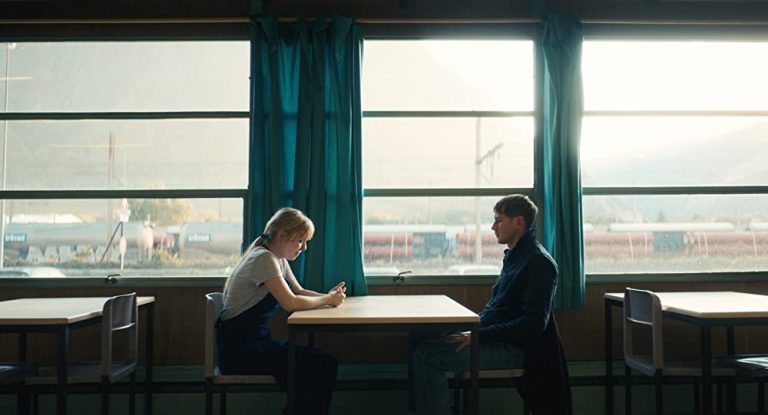Bora Kim’s House of Hummingbird (벌새) won big at the Tribeca Film Festival. The film is so emotionally potent that it’s hard to believe it is her debut feature. Based on the experiences from her adolescent years, the narrative is largely autobiographical. Nothing feels rushed in the film, which has a precise time and space for every situation to flourish. Reminiscent of Edward Yang among others, the film is based in ’90s Seoul and revolves around Eun-hee (played by Ji-hu Park), a girl from a working-class family. But it somehow manages to become a universal coming-of-age tale that will resonate with audiences from all over the world.
The story is set around the time when president Kim Il-sung died. Not long after, the famous Seongsu Bridge collapsed which inflicted deep wounds on everyone who was a part Seoul. At the time, Eun-hee, who lives there, is dealing with her own difficulties in daily life. She, a 14-year-old teenager, is often neglected by her parents. Their own concerns seem more important for them than her emotional development. As a result, she seems rather quiet and introverted which leads her friends to think that she’s dull and unambitious. Moreover, her lack of motivation often leads her to boredom.
Set in a period where things were happening so quickly in South Korea that the workers were busy with better opportunities. In a middle-class family such as hers, it resulted in the lack of attention towards their children. Eun-hee, speaking with her close friend as a part of casual conversation, about their shared misery of getting beaten by their respective elder brothers is nothing short than heartbreaking. “You kids need to stop fighting,” is the only reply she gets from her parents afterwards.
For how she appears to the world, she is hardly accepted by her classmates or even her siblings. She is a mediocre student who isn’t keen on paying attention in her class either. Her parents hope her to be present-minded and earn better grades like her older brother, whom she despises. Her teacher wants all his students to focus on being goal-oriented than spending time playing karaoke, partying or dating. She never gets a chance to let her ideas flourish. Her struggle is with herself and to be accepted.
Also, Read – FLESH OUT [2019]: ‘TRIBECA’ REVIEW – A HALF-BAKED SOCIAL DRAMA
While being open about her sexual preferences might seem a little odd for the period that the film is set in, House of Hummingbird neither loses the delicacy nor tries to portray things for the sake of being bold. It rather describes how her character was open to any option to seek love quietly, similar to a hummingbird trying to find the essence of life. The moments she experiences with her sexual partners Ji-wan (Yoon-seo Jeong) and Yu-ri (Hye-in Seol) only extend to just a stolen kiss or shared glance which looks more intricate than provocative.
In the pursuit of acceptance, she comes across her cram-school teacher Young-ji (Sae-byuk Kim). Trying to be comfortable with oneself while not being understood by the outer world is what seems to be their shared tragedy. Her first encounter with this tutor is her smoking by a window, oblivious to what she would be perceived as. Unlike anyone else, she seems genuinely curious to know about Eun-hee and her interests. She is absent-minded just like her. She seems to see her own imperfect and bruised younger-self in Eun-hee which makes them even closer. So close that Eun-hee doesn’t mind fighting for her being called out as ‘odd’. It’s a sheer delight to see their interactions, thanks to their heartfelt performances and the dialogues worth cherishing.
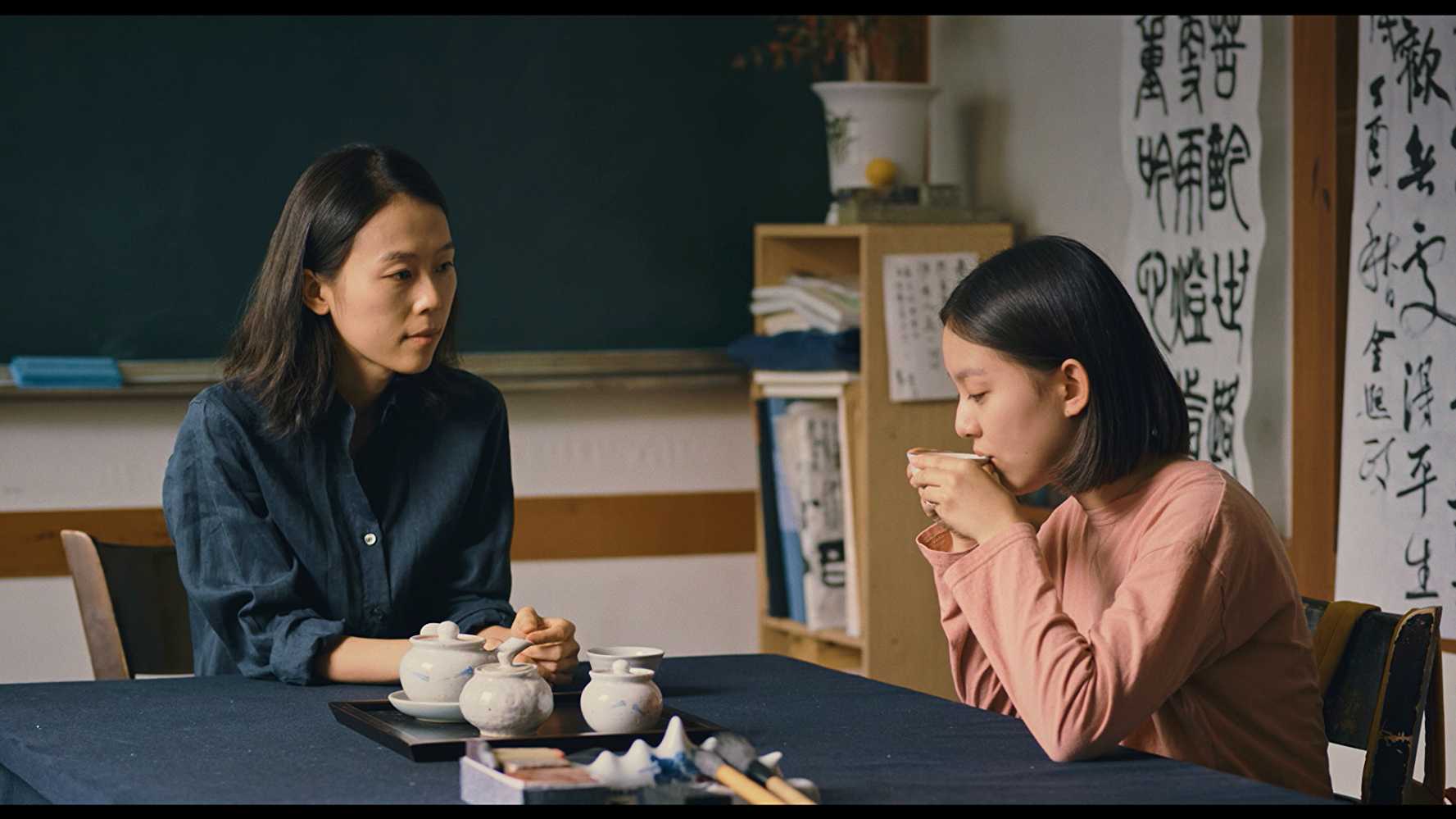
Although Edward Yang is what House of Hummingbird reminded me of, the way it conveyed the detachment, it shows influences of other filmmakers too like Kore-eda, for the long takes and the lack of camera movements which results in quiet, tranquil pace. The intimacy in their relation took me back to Makoto Shinkai’s Garden of Words; especially in a scene where Eun-hee runs back from the stairs to hug her, the same earnest connection is felt.
The sound design is done by Myung-Wan-Han, who has worked with the likes of Hong-Sang-soo and Lee-Chang-dong. The influence is clearly felt by the way those extended moments leave a profound impact with precise atmosphere-building. The diluted tones bring out the conflict without dramatizing and maintain the required subtlety. Even the sexual pleasures never seem out-of-place or invasive, thanks to the cinematographer Gook-Hyun Kang. Instead of trying to build a period from the past with its production design, the film relies on making it seem like a narrative that can happen even today. While doing that, it only gives small cues with contemporary music and news.
All of this wouldn’t have worked without a neatly realized performance by Ji-hu Park as this vulnerable yet resilient protagonist. Her character was lonely but not apathetic. Especially from the strength after finding someone like her tutor, she hopes that her readers find strength through her writing, in their time of loneliness. Her eyes reflect every emotion she wants to hide so badly. You see her crying rarely. Her muted emotions are often a result of self-inflicted pain, which this new-comer brilliantly captures through her performance. It was about small realizations than grand gestures. And Bora Kim clearly succeeds in presenting that through the film.

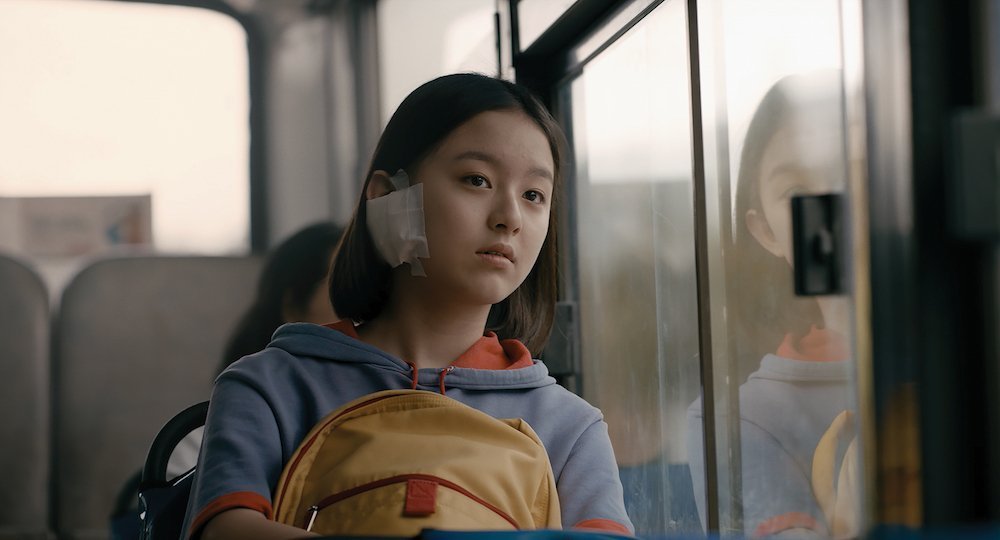


![Matriarch [2022] Review: Abandons its Rich Triple-Goddess-Archetype Idea in the Third Act](https://79468c92.delivery.rocketcdn.me/wp-content/uploads/2022/10/Matriarch-2022-Movie-Review-768x432.jpg)

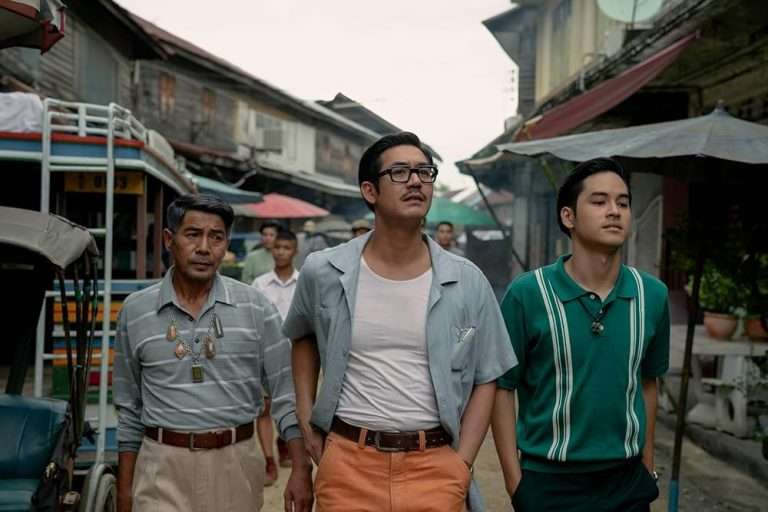
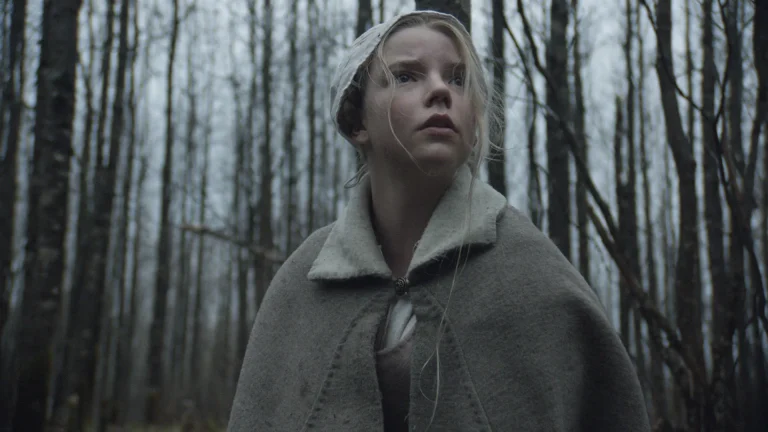
![Maggie’s Plan [2016] : A refreshing take on familiar tropes.](https://79468c92.delivery.rocketcdn.me/wp-content/uploads/2016/08/Maggies-Plan1.jpg)
